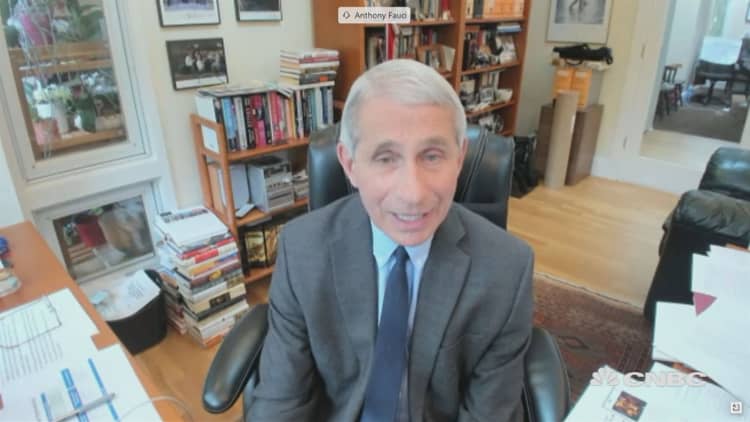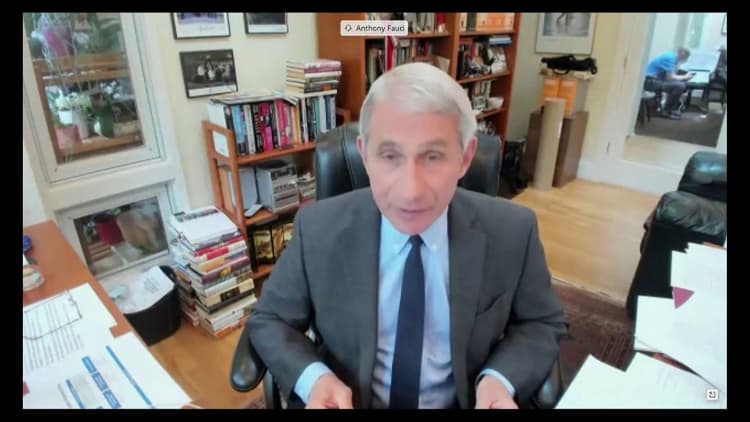As drugmakers across the world race to develop a coronavirus vaccine, White House health advisor Dr. Anthony Fauci said, "There's no guarantee that the vaccine is actually going to be effective."
Fauci delivered the somber warning Tuesday to the Senate Committee on Health, Education, Labor and Pensions during a hearing about the road to reopening businesses across the nation. U.S. officials have pointed to the development of a vaccine as a key turning point in the Covid-19 pandemic, even though it will take at least 12 to 18 months.
As experimental vaccines are created, they will also need to be mass produced to be administered to the more than 7.6 billion people around the world. In the meantime, there are no proven treatments for the virus.

Fauci's comments highlight another complexity in the path to a vaccine.
"You can have everything you think that's in place and you don't induce the kind of immune response that turns out to be protective and durably protective," Fauci said of a vaccine. "So one of the big unknowns is, will it be effective? Given the way the body responds to viruses of this type, I'm cautiously optimistic that we will with one of the candidates get an efficacy signal."
The National Institutes of Health, an agency within the Department of Health and Human Services, has been fast-tracking work with biotech company Moderna to develop a potential vaccine. More than 100 vaccines are in development globally as of April 30, according to the World Health Organization, with at least eight vaccine candidates already in human trials.
Moderna is completing its phase one trial. The company's potential vaccine contains genetic material called messenger RNA, or mRNA, that was produced in a lab. Last week, Moderna said it would soon begin phase two trials with 600 participants and was finalizing plans for a late-stage trial as early as this summer.
Until a vaccine is ready, Fauci said, the country needs to continue trying to mitigate and contain outbreaks.
Another worry among epidemiologists, Fauci said, is that the vaccine backfires and strengthens the virus.
There have been at least two vaccines in the past that have produced a "suboptimal response," he said. "And when the person gets exposed, they actually have an enhanced pathogenesis of the disease, which is always worrisome. So we want to make sure that that doesn't happen. Those are the two major unknowns."
Still, Fauci said he's "cautiously optimistic that we will have a candidate that will have some degree of efficacy, hopefully a percentage enough that will induce the kind of herd immunity that would give protection to the population at home."
— CNBC's Kevin Breuninger and William Feuer contributed to this article.
Read CNBC's live updates to see the latest news on the Covid-19 outbreak.
WATCH: Dr. Anthony Fauci's opening statement to Congress on coronavirus pandemic




